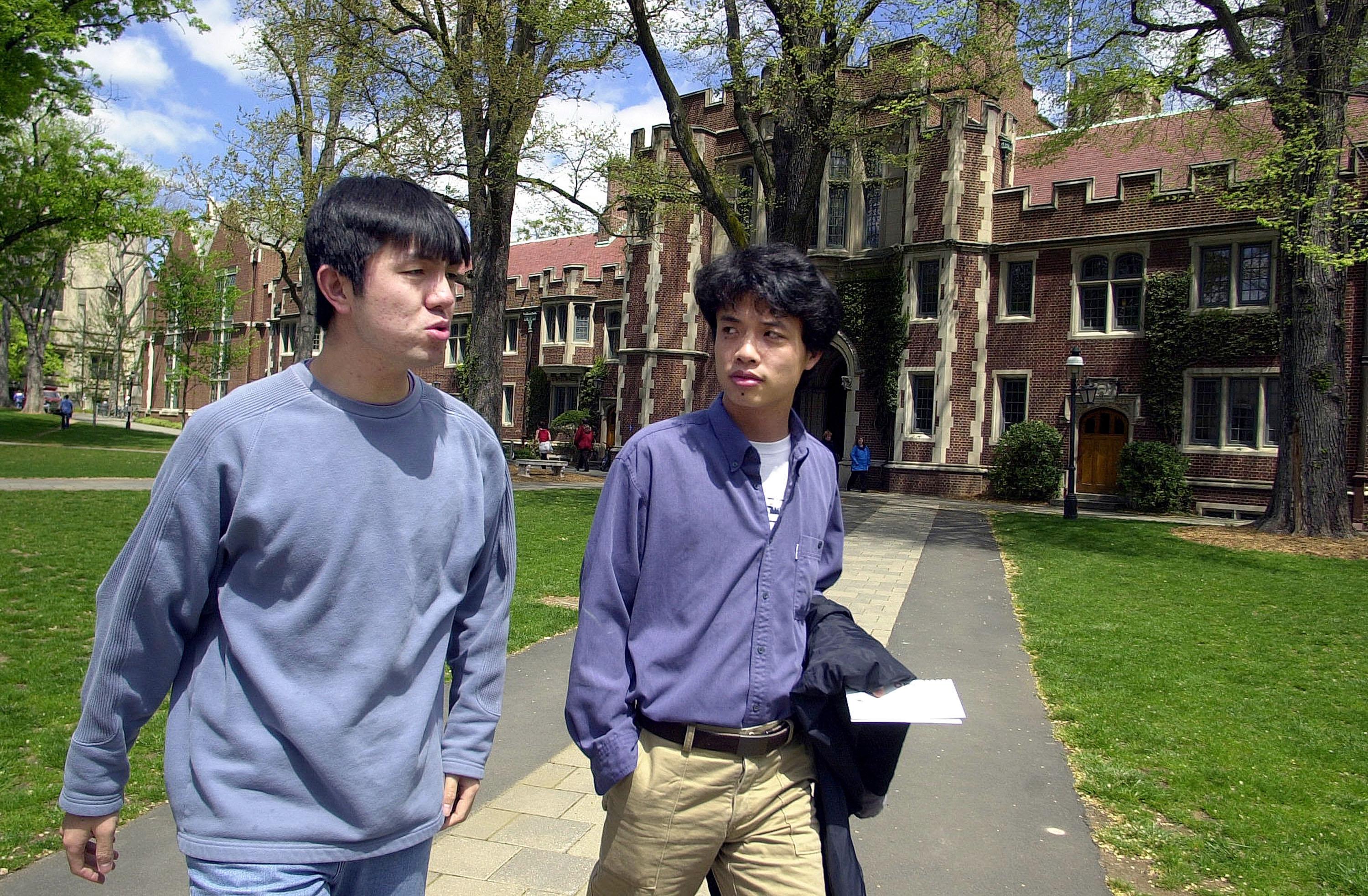The shocking story of a fraternity house gang rape at the University of Virginia published by Rolling Stone last month caused the school to temporarily suspend all the frats on campus, and it reopened the discussion about whether fraternities are an outdated institution that should be ended altogether. As Jay Hathaway at Gawker noted in his call to ban frats, “The events reported in that story are an especially gruesome version of an act that is far too common at America’s fraternities—according to a 2007 study, men who enter fraternities are three times as likely to commit rape as their fellow students who do not.” It makes sense that these archaically single-sex organizations would magnify already existing problems stemming from sexism, so it would follow that ending this tradition would do a lot of good.
Or what about just ending the existing single-sex form and making fraternities co-ed? Perhaps that could curb some of the excesses? As a case study, it’s worth looking at the eating clubs of Princeton, which have all been integrated for a couple of decades now. Tiger Inn, which is still the most traditionally fratty of the eating clubs, made the New York Times on Monday after ousting two officers for sending out sexist emails:
The first email, dated Oct. 12, showed a woman engaged in a sex act with a man in one of the public spaces of the club, Tiger Inn. It was sent out by Adam Krop, the club’s vice president, to all the names on a club-wide mailing list, and it was accompanied by a crude joke and a reference to the woman as an “Asian chick.”
Later that night Andrew Hoffenberg, the treasurer, sent an email to the same list regarding a lecture by the Princeton alumna whose lawsuit forced eating clubs to admit women. “Ever wonder who we have to thank (blame) for gender equality,” the email began. “Looking for someone to blame for the influx of girls? Come tomorrow and help boo Sally Frank.”
The Hoffenberg case was particularly interesting, in that he was deliberately emailing everyone—including the women—in the club to express his belief that women don’t belong. The story shows that integrating single-sex social clubs and fraternities is hardly a cure-all for sexism.
That said, two officers of the Tiger Inn were formally disciplined with relative speed, and a criminal investigation has even opened to determine whether the photos in the first email violated New Jersey’s “revenge porn” law. Contrast that with the UVA culture of fear surrounding even reporting sexual abuse, as detailed in the Rolling Stone article. Considering how much more serious sexual assault is than some jerk sending out a sexist email, the difference is all the more noteworthy.
Of course, these are just two examples out of a sea of universities dealing with the problems of sexism and sexual abuse on campus. It’s a complex issue that resists easy solutions, though taking the problem seriously instead of sweeping it under the rug really is the minimum requirement here. But it’s telling that even a notoriously “fratty” club like the Tiger Inn was capable of dealing with its problem, suggesting that getting more women in the mix might contribute to an atmosphere of more accountability.
